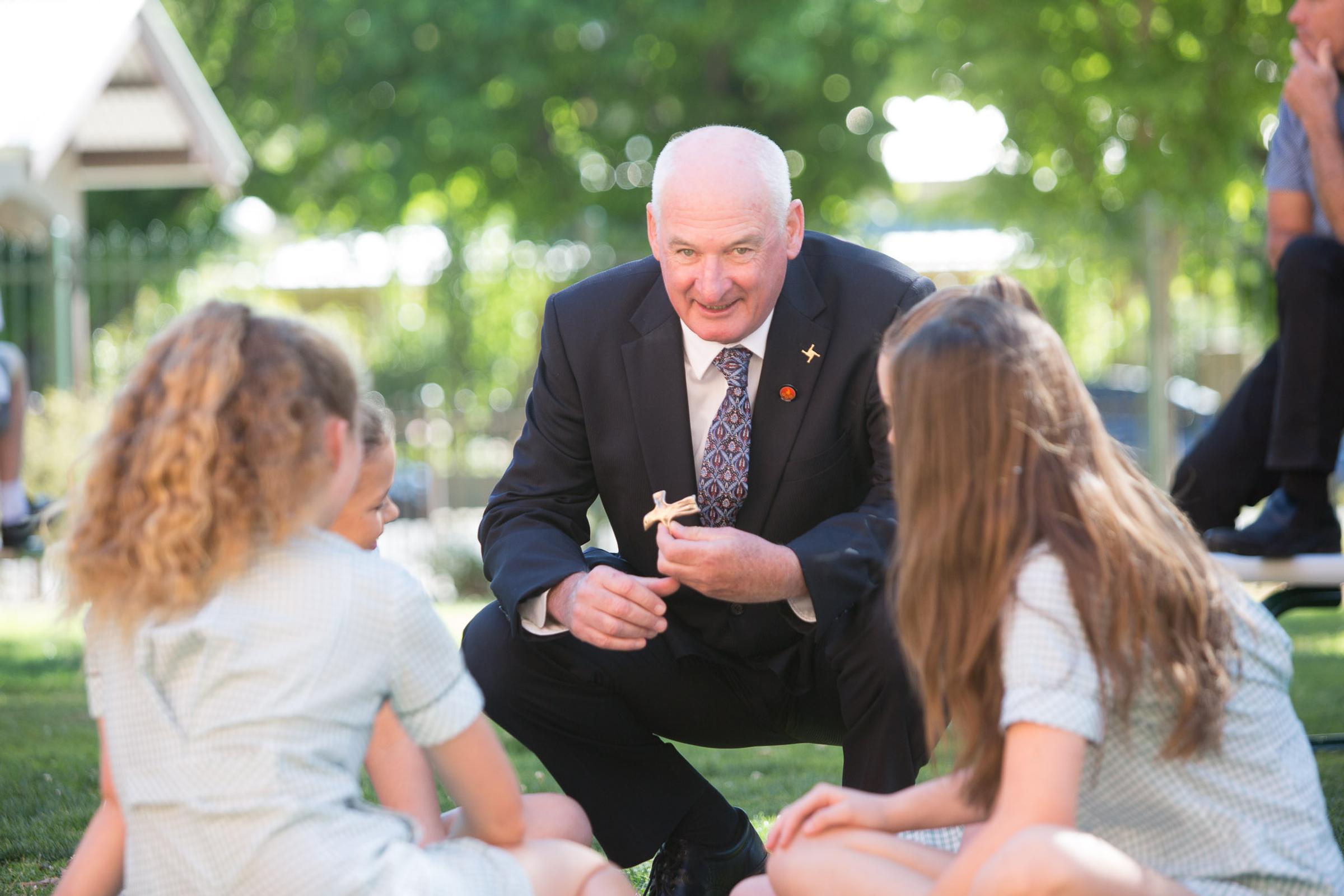Principal's Report

NAIDOC Week 2020
Always Was, Always Will Be.
Always Was, Always Will Be recognises that First Nations people have occupied and cared for this continent for over 65,000 years.
We are spiritually and culturally connected to this country.
This country was criss-crossed by generations of brilliant Nations.
Aboriginal and Torres Strait Islander people were Australia’s first explorers, first navigators, first engineers, first farmers, first botanists, first scientists, first diplomats, first astronomers and first artists.
Australia has the world’s oldest oral stories. The First Peoples engraved the world’s first maps, made the earliest paintings of ceremony and invented unique technologies. We built and engineered structures - structures on Earth - predating well-known sites such as the Egyptian Pyramids and Stonehenge.
Our adaptation and intimate knowledge of Country enabled us to endure climate change, catastrophic droughts and rising sea levels.
Always Was, Always Will Be acknowledges that hundreds of Nations and our cultures covered this continent. All were managing the land - the biggest estate on earth - to sustainably provide for their future.
Through ingenious land management systems like fire stick farming we transformed the harshest habitable continent into a land of bounty.
NAIDOC Week 2020 acknowledges and celebrates that our nation’s story didn’t begin with documented European contact whether in 1770 or 1606 - with the arrival of the Dutch on the western coast of the Cape York Peninsula.
The very first footprints on this continent were those belonging to First Nations peoples.
Our coastal Nations watched and interacted with at least 36 contacts made by Europeans prior to 1770. Many of them resulting in the charting of the northern, western and southern coastlines – of our lands and our waters.
For us, this nation’s story began at the dawn of time.
NAIDOC 2020 invites all Australians to embrace the true history of this country – a history which dates back thousands of generations.
It’s about seeing, hearing and learning the First Nations’ 65,000+ year history of this country - which is Australian history. We want all Australians to celebrate that we have the oldest continuing cultures on the planet and to recognise that our sovereignty was never ceded.
Always Was, Always Will Be.
(From: https://www.naidoc.org.au/get-involved/2020-theme accessed 9 November 2020.)
No greater love …
This week we also remember all those who have been killed in wars. During my enrichment leave in 2009 I took the opportunity one weekend to visit some of the famous Flanders fields in which so many men and women sacrificed themselves for their countries. The most sobering fact that I remember from that very emotional day was on a sign at the site of the Pozieres battles. “The combined death toll from both sides of the conflict between mid June and November 1916 was 1,300,000.” The selflessness of their sacrifice and the magnitude of the death toll brought an overwhelming sense of humility and sorrow. It also highlighted the extreme futility of war and conflict.
Expectations
All students are well aware of our expectation that they will “behave in a way that allows students to learn and teachers to teach”. This is an important expectation year-round but takes on an increased importance in these last few weeks of the academic year. There is much to be accomplished in these next four weeks and everyone needs to work together in order to make sure that we finish the school year really well on Wednesday 9 December.
There is another expectation that I have of staff during these busy times that I would like to share with students and parents too. We can really show how much we care about those around us by deliberately going about our work in a way that minimizes (preferably eliminates) any negative impact on another’s workload. For teachers this means focusing on things like meeting deadlines, not letting their classes distract other classes, etc.
For students at this busy end of the year it would be to acknowledge that the teachers are under pressure in these last few weeks to get assignments and exams corrected so that final reports can be written. Each piece of work that is not submitted on time initially creates work that a teacher does not need in terms of chasing that work and subsequently upsets that teacher’s time management and ability to meet their own deadlines. Obviously, this is but one small example of how students can help to minimize the negative impact that they have on a teacher’s workload. A myriad of things comes to mind in a very short time if we begin to think about other examples: was the permission slip returned on time?, is my uniform correct?, why am I expecting the teacher to ‘make me’ all the time instead of me just meeting expectations?
Do I care enough about those around me to work to the best of my ability to get my own work done in a way that minimizes the negative impact on those around me?
Weeks like NAIDOC week and days like 11 November make us stop and reflect on our responsibility to work for reconciliation and peace in the world. We all need to pray for our world that it may become a more peaceful place.
God bless.
Michael Delaney
Principal
